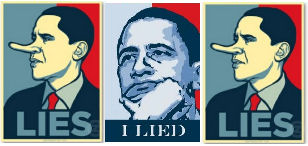
|
Chapter 3 - (2nd Edition) CENSORED MEDICAL STUDIES |

|
|---|
THE DOCTORS
The Conspiracy to Silence

THE DOCTORS – The Conspiracy to Silence:
It is well known the Federal Government (at the highest levels), had made it perfectly clear. If you are a Doctor AND you write a prescription for Medical Cannabis (for any reason) that you will lose your Federal license to write ALL prescriptions --- It will automatically be revoked. And let’s be blunt, without that license to write prescriptions for (so-called) control substances, a doctor is pretty much out of business.
In order to get around this (very ugly but true) fact, most State-wide Medical Cannabis Ballet initiatives put forth before the voters are written in such a way as to ONLY require a health care providers “written” recommendation.
HOWEVER, it didn’t take long for the office of the drug czar to figure that out, and (determined as they are to keep Medical Cannabis away from all Cancer patients), to figure out a way to re-outlaw Medical Cannabis. Simply put, they introduced a new rule preventing physicians from even discussing the use of marijuana with patients, -- This according to the narc’s, was ALL done in the name of public safety and had absolutely nothing to do with censorship. [Without comment on our part]
The following (bit’s and pieces) from two articles best explain the situation as well as what came of the legal fight.
http://www.ncbi.nlm.nih.gov/pmc/articles/PMC1305083/The next article (below in it’s entirety) explains what happened:
Medical Marijuana - Commentary
JANE B. MARMOR, MD, Redwood City, California
Marmor JB. Medical marijuana. 1998; 168: 540-543
On November 5, 1996, California voters passed the Compassionate Use Act (Proposition 215) by a wide margin (56% to 44%). This law now permits "seriously ill" patients and their primary caregivers to cultivate and possess marijuana for the patients' personal medical use if they have the "written or oral recommendation or approval of a physician." Several diagnosis for which marijuana may have palliative benefit are listed in the proposition, but its use is not limited to these diagnosis, and there is no age limitation. Many physicians and the California Medical Association (CMA) opposed this proposition because it bypasses the pharmacologic safeguards of the US Food and Drug Administration and has a potential for abuse. But it is now the law, and its passage (and the proposal of similar laws in other states) has accelerated the societal debate on medical marijuana use and created a scientific and legal dilemma for physicians in California.
Legal Issues Before the passage of Proposition 215, no one questioned that California physicians could discuss the use of marijuana with patients, including expressing an opinion on using it to alleviate symptoms, without being subject to prosecution under federal drug laws. Since the passage of the proposition, however, even a verbal "recommendation" has legal force and allows a patient to obtain marijuana. Because marijuana remains a schedule I substance under federal law, it is still illegal to prescribe (or distribute, possess, or cultivate), and therefore, such a recommendation could be viewed as an illegal act. On December 30, 1996, Barry R. McCaffrey, Director of the Office of National Drug Control Policy, announced possible federal sanctions against physicians who discuss or recommend the medical use of marijuana. These included the revocation of Drug Enforcement Administration registration, exclusion from Medicare and Medicaid programs, and criminal prosecution. [1]
This announcement was interpreted by many physicians as an attempt to intimidate them and to censor the free exchange of information between physicians and patients. The CMA and the American Medical Association strongly objected to this stance, and several California physicians brought a class-action suit in federal court seeking an injunction against federal threats to punish physicians for discussing or recommending the use of medical marijuana (Conant v McCaffrey). On April 30, 1997, the federal court issued a preliminary injunction enjoining the federal government from threatening or prosecuting physicians based on conduct relating to medical marijuana use so long as that conduct "does not rise to the level of a criminal offense" ---that is, deliberately assisting in obtaining the substance. This injunction remains in effect until the class-action suit is decided at trial. It protects California physicians who, in the context of a bona fide physician-patient relationship, discuss or recommend the medical use of marijuana to patients with a specific list of diagnoses: the acquired immunodeficiency syndrome (AIDS) or human immunodeficiency virus (IRV) infection, cancer, glaucoma, seizures, or muscle spasms. [2]
http://stopthedrugwar.org/chronicle-old/307/conant.shtml
In a silent rebuke to the Bush administration, the US Supreme Court Tuesday refused to hear the federal government's appeal of a lower court decision blocking the feds from punishing doctors who recommend marijuana to their patients. While drug reform and patient advocates hailed the decision as a victory, the ruling does not make medical marijuana legal, nor does it prevent the federal government from continuing its policy of raids and arrests of medical marijuana providers. It does, however, block the Justice Department from threatening to suspend the prescription privileges of doctors who recommend medical marijuana. In so doing, it removes one tactic from the Justice Department's arsenal of techniques to harass the medical marijuana movement.[MUSUEM COMMENTS] – We are reminded of a fictional character who was asked :
The case in question, Conant vs. Walters, originated in the Clinton administration's response to the 1996 passage of Proposition 215, which legalized medical marijuana in California under state law. Stunned by the measure's success, then drug czar Gen. Barry McCaffrey sought ingeniously to thwart the will of California voters by scaring doctors into not recommending or even discussing medical marijuana with their patients. While drafters of Prop. 215 sought to avoid conflict with federal law by not requiring a doctor's prescription, only a recommendation, McCaffrey countered that move by threatening doctors with the loss of DEA-controlled prescription privileges if they mentioned pot.
A group of California physicians and patients led by Dr. Marcus Conant filed suit against the federal government, charging that the no-talk policy violated their First Amendment right to free speech. Administrations changed as the case dragged on, but the John Ashcroft Justice Department was more than eager to carry on. After being handed a defeat by the 9th US Circuit Court of Appeals in San Francisco, the feds appealed to the Supreme Court. On Tuesday, the court in effect told them to go away.
Drug reform groups involved in the legal effort hailed the ruling, with the Marijuana Policy Project (http://www.mpp.org) calling it "an historic victory for patients and doctors." The Drug Policy Alliance (http://www.drugpolicy.org), which provided financial assistance for the court battle, characterized the decision as "a major victory."
"By deciding not to hear this case, the Supreme Court has eliminated any doubt that states have the right to protect medical marijuana patients under state law, and that physicians have the right to give patients honest advice and recommendations, whether the federal government approves or not," said MPP executive director Rob Kampia in a statement applauding the decision.
The lead plaintiff in the case, Dr. Conant, a San Francisco AIDS specialist, told the Los Angeles Times he was very pleased. "This means I can do my job again and have real conversations with my patients about medical marijuana as part of their treatment options."
Likewise, Graham Boyd of the ACLU's Drug Policy Litigation Project, who argued the case for the plaintiffs, told the Times the decision not to hear the appeal was a victory for patients and doctors alike. "The Supreme Court's action today protects doctors and patients from government censorship of open and honest discussions in the exam room," said Boyd. "Patients deserve access to accurate information about all possible medicines from their doctors, including medical marijuana."
It is rare for the Supreme Court to refuse to even hear federal government appeals of lower court decisions, but that is what it did Tuesday. The Justice Department could not get the minimum of four justices to agree to hear the case. The justices appear to have been content with the 9th Circuit Court of Appeals' ruling, which called doctors' ability "to speak frankly and openly" with patients a "core First Amendment right" that could not be infringed by the government.
In briefs submitted to the court, patient and medical groups such as the California Medical Association, the American Academy of Pain Medicine, and the Society of General Internal Medicine compared doctors recommending medical marijuana to physicians providing advice on "red wine to reduce the risk of heart disease, Vitamin C, acupuncture, or chicken soup Revoking the prescription-writing privileges of doctors who recommended pot to patients would erode the patient-doctor relationship and ran counter to accepted medical ethics, they charged.
The Justice Department argued that the case was about the public health, not free speech. "The provision of medical advice -- whether it be that the patient take aspirin or vitamin C, lose or gain weight, exercise or rest, smoke or refrain from smoking marijuana -- is not pure speech," argued Solicitor General Ted Olsen. "It is the conduct of the practice of medicine. As such, it is subject to reasonable regulation."
But in rejecting the Justice Department's appeal, the Supreme Court made clear it wasn't buying that argument. The ruling is important because if the court had accepted the case and eventually ruled in favor of the federal government, state medical marijuana laws would have been essentially nullified -- all eight states [there are many more now] with medical marijuana laws have some sort of medical recommendation requirement. If doctors could not recommend, patients could not legally receive their medicine. Now, however, the federal government will have to find another means of suppressing the medical marijuana movement.
-- END --

His Reply, “Your Looking AT IT ; It Came True”
Legal briefs on this matter (as well as the complete articles) can be found on numerous websites, and due to download time cannot be displayed here. However, if the reader has trouble finding them, please feel free to email us, they can be sent back to you as attachments.
=========
FOOTNOTES
[1]- Office of National Drug Control Policy. Statement released by Barry R. McCaffrey. The Administration's response to the passage of California Proposition 215 and Arizona Proposition 200, December 30, 1996. Also available from www.ncjrs.org or www.whitehousedrugpolicy.gov
[2]- Conant v McCaffrey (ND Cal, April 30,1997), F Supp No. C 97-0139. Also available from www.soros.org/lindesmith
WANT TO KNOW MORE:
=====================
Due to space / download time considerations, only selected materials are displayed. If you would like to obtain more information, feel free to contact the museum. All our material is available (at cost) on CD-Rom format.
CONTACT PAGE
 The CENSORSHIP Files MAIN INDEX |
 Dr. TOD MIKURIYA ONE DOCTORS EXPERIENCE |